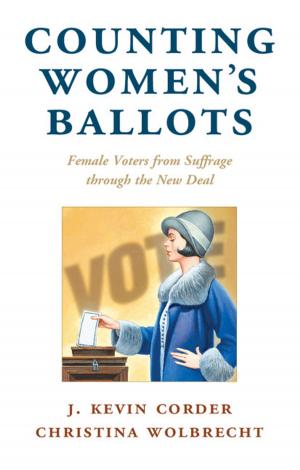Media Bias, Perspective, and State Repression
The Black Panther Party
Nonfiction, Social & Cultural Studies, Political Science, International, Foreign Legal Systems| Author: | Christian Davenport | ISBN: | 9780511700569 |
| Publisher: | Cambridge University Press | Publication: | November 23, 2009 |
| Imprint: | Cambridge University Press | Language: | English |
| Author: | Christian Davenport |
| ISBN: | 9780511700569 |
| Publisher: | Cambridge University Press |
| Publication: | November 23, 2009 |
| Imprint: | Cambridge University Press |
| Language: | English |
This book examines information reported within the media regarding the interaction between the Black Panther Party and government agents in the Bay Area of California (1967–1973). Christian Davenport argues that the geographic locale and political orientation of the newspaper influences how specific details are reported, including who starts and ends the conflict, who the Black Panthers target (government or non-government actors), and which part of the government responds (the police or court). Specifically, proximate and government-oriented sources provide one assessment of events, whereas proximate and dissident-oriented sources have another; both converge on specific aspects of the conflict. The methodological implications of the study are clear; Davenport's findings prove that in order to understand contentious events, it is crucial to understand who collects or distributes the information in order to comprehend who reportedly does what to whom as well as why.
This book examines information reported within the media regarding the interaction between the Black Panther Party and government agents in the Bay Area of California (1967–1973). Christian Davenport argues that the geographic locale and political orientation of the newspaper influences how specific details are reported, including who starts and ends the conflict, who the Black Panthers target (government or non-government actors), and which part of the government responds (the police or court). Specifically, proximate and government-oriented sources provide one assessment of events, whereas proximate and dissident-oriented sources have another; both converge on specific aspects of the conflict. The methodological implications of the study are clear; Davenport's findings prove that in order to understand contentious events, it is crucial to understand who collects or distributes the information in order to comprehend who reportedly does what to whom as well as why.















